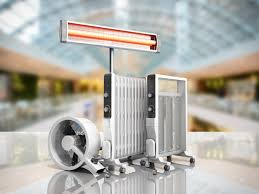Complete Electric Heater Guide: Warmth, Safety, and Energy Tips
Table of Contents
Introduction
What is an Electric Heater?
Importance of Electric Heaters
Types of Electric Heaters
a. Convection Heaters
c. Fan Heaters
d. Infrared Heaters
Pros and Cons of Electric Heaters
Safety Tips for Using Electric Heaters
How to Choose the Right Electric Heater
Conclusion
FAQs
Introduction:
What is an Electric Heater?
Electric heater is that part which converts electricity into energy and gives warm environment. Electric heater is used mostly in our house , office, wedding,and other party and function in cold weathers. The heating element inside the device warms up when electricity flows through it, providing instant warmth to the surrounding area.
Importance of Electric Heaters
Electric heater is that part which converts electricity into energy and gives warm environment. Some of the important role of electric heaters are below:
Energy Efficiency: IN these modern time mostly heater designs to maximize heat with less consumption of electricity and bill.
Portability: Many electric heaters are lightweight and portable heater, making them ideal for different rooms. There are many electric heater are normal weight, less space recover and portble that make ideal personality of rooms and other places.
Ease of Use: There usage and installment is so easy and operate with requiring power outlet.
Safety Features: Advanced models come with safety features such as tip-over protection and automatic shut-off.
Types of Electric Heaters
Electric heaters come in various types, each suitable for different needs:
a. Convection Heaters
Convection heaters work by circulating warm air throughout the room. They are perfect for heating larger spaces evenly.
b. Radiant Heaters
Radiant heaters these heater provide heat directly all object that placed in front of the heater and these heater are best for the small rooms of our houses.
c. Fan Heaters
Fan heaters use a fan to spread heat from the heater spring and its also use fan to throw heat on the objects that place away from the front of the heaters.
d. Infrared Heaters
Infrared heaters emit heat in the form of infrared radiation, similar to sunlight. They are energy-efficient and provide instant warmth.
Pros and Cons of Electric Heaters
Pros:
Quick Heating: Electric heaters provide fast heats.
Energy Efficiency: mostly heaters are designed for less energy consumption.
Portability: Thses can be set any where at home and rooms and also can be move easily.
Wide Variety: Available in many designes and diffrent varient according to the space and areas.
Low Maintenance: Electric heaters require minimal upkeep compared to other heating systems.
Cons:
Higher Operating Costs: Electricity can be more expensive than other fuel sources like gas.
Limited Coverage: Most electric heaters are suitable for small to medium-sized spaces.
Safety Concerns: Misuse can lead to fire hazards.
Dry Air: Prolonged use may reduce humidity in the room, causing discomfort.
Safety Tips for Using Electric Heaters
Safety is crucial when using electric heaters. Follow these tips to ensure safe usage:
Keep Away from Flammable Materials: Always set your heater at least two or three feet away from all the objects that can be catch the flam from the heat of heaters.
Use a Stable Surface: Always use the plane and smooth surface to prevent tipping over.
Never Leave Unattended: Before going to sleep turn off the heater that can be safe your life from any incidents
Avoid Overloading Outlets: Plug the heater directly into a wall outlet and do not use the extension or other related source of power with low quality wire gaduge
Regular Maintenance: Remove dust and debris from the heater on daily basis.
Check Safety Features: Choose models with built-in safety features like tip-over protection and automatic shut-off.
How to Choose the Right Electric Heater
When selecting an electric heater, consider the following factors:
Room Size: Ensure the heater’s wattage matches the size of your room.
Type of Heater: Choose the type that best suits your heating needs.
Energy Efficiency: Look for energy-efficient models with adjustable thermostats.
Safety Features: Opt for heaters with advanced safety mechanisms.
Budget: Consider both the upfront cost and operating expenses.
Conclusion
Electric heaters are a convenient and efficient way to keep your home warm during the colder months. By understanding their types, advantages, and safety measures, you can enjoy a comfortable and safe winter. Whether you need a heater for personal use or a large space, there’s a model to suit every requirement.
FAQs
1. Are electric heaters energy-efficient?
Yes, many modern electric heaters are designed to maximize energy efficiency while providing effective heating.
2. Can electric heaters cause fires?
While rare, misuse of electric heaters can lead to fire hazards. Always follow safety guidelines to prevent accidents.
3. What is the best type of electric heater for large rooms?
Convection heaters are ideal for heating larger spaces evenly.
4. Do electric heaters dry out the air?
Yes, prolonged use of electric heaters can reduce humidity. Using a humidifier can help balance the moisture.
5. How much electricity does an electric heater consume?
Electricity consumption depends on the heater’s wattage and usage time. Most models consume between 1-2 kWh per hour.




